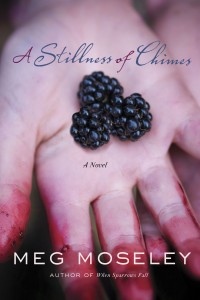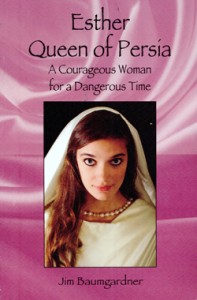Happy Passover/Pesach/Pascha/Easter Season! May you all have blessed holiday celebrations within your traditions!
In my theology class right now, we are talking about the resurrection of believers upon Jesus’ return. He is the “fruit fruits” of the harvest, and we likewise will be resurrected through Him–first those who are “sleeping” (a reminder that we do not experience death even in death itself), then those who are alive when He returns (1 Thess. 4:16-17, 1 Cor. 15:20, 23, Isaiah 26:16-21).
Why are believers going to be given new bodies?
“Now may the God of peace Himself sanctify you entirely; and may your spirit and soul and body be preserved complete, without blame at the coming of our Lord Jesus Christ” (1 Thess. 5:23).
It is not just our spirit and soul that is made perfect and reconciled to God, but also our body. There is a partial sanctification of our bodies even now, as the Lord graces us as our healer. But the physical body, like the physical world, cycles into decay and destruction–things get old, and they begin not to work as well. In the Kingdom, the cycle is opposite: everything moves from glory to glory. The resurrection of our physical bodies is a fullness/consummation of that new cycle into our glorification with Christ.
Those who are made imperishable can no longer exist alongside the perishable (within a perishable body); thus, we need new bodies. It is like the parable of the wine and the wineskins or of mixing the old and new garment. The spiritual and the physical will be mended together upon Jesus’ coming; but in order for that to happen, everything that does not reflect the Kingdom must be done away with (like our old bodies), and made new.
“So also is the resurrection of the dead. It is sown a perishable body, it is raised an imperishable body; it is sown in dishonor, it is raised in glory; it is sown in weakness, it is raised in power; it is sown a natural body, it is raised a spiritual body. If there is a natural body, there is also a spiritual body” (1 Cor. 15:42-44).
How will they differ from our current bodies?
I have already mentioned that while our current bodies are prone to aging, illness, and decay, our new bodies will instead follow the Kingdom principle of glory to glory: “But we all, with open face beholding as in a glass the glory of the Lord, are changed into the same image from glory to glory, even as by the Spirit of the Lord” (2 Cor. 3:18). This begins in part now, but in fullness only upon the day of the Lord. Notice Philippians 3:21 says Jesus will “transform our lowly body that it may be conformed to His glorious body.” He is not going to “replace” our body so much as completely transform it. We will still be ourselves, but in the vision God had of us at the Creation of the world. We will be imperishable, glorified, powerful, healthy, and perfect in Him!
We can also glean insights about our resurrected bodies from observing Jesus’ resurrected form. Jesus’ resurrected body was a combination of the physical and the spiritual in perfect unity. He was not a spirit, but came in corporeal form. People could see Him, and touch Him (Mat. 28:9, Luke 24:39, John 20:27-28). He was able to eat food (John 21:12-15). But He was also able to transport from one place to another and/or walk through walls–in other words, He had no physical hindrances (Luke 24:31, John 20:19). We can likewise expect to experience the completeness of the physical and spiritual realms at-one-with-each-other (atoned) in our resurrected state.
I most look forward to the deepness of intimacy with God and each other that is so beyond what we know and crave in this world that the marriage relationship will not be necessary (Mat. 22:23-30). I also imagine exciting new possibilities like flying/levitation, and other adventures beyond our wildest thoughts and dreams.
It will be glorious. Praise the Lord for dying for us, so that we can follow Him into death and resurrected life!



 For Such a Time is a unique retelling of Esther based during the Holocaust. Hadassah Benjamin (hiding under false paperwork as Stella Muller) is rescued from a shooting line and finds herself in the odd position of working as a secretary for SS Kommandant Colonel Aric von Schmidt while her fellow Jews (including her uncle Morty) endure the harsh conditions of the Czechoslovakian transit camp, Theresienstadt, that borders her new “home.” Worse, her people are progressively being transported to Auschwitz, and she is ordered to type up the lists of names finalizing their transportation and certain death–all while hiding her true identity, struggling with her faith, and feeling that God has abandoned them.
For Such a Time is a unique retelling of Esther based during the Holocaust. Hadassah Benjamin (hiding under false paperwork as Stella Muller) is rescued from a shooting line and finds herself in the odd position of working as a secretary for SS Kommandant Colonel Aric von Schmidt while her fellow Jews (including her uncle Morty) endure the harsh conditions of the Czechoslovakian transit camp, Theresienstadt, that borders her new “home.” Worse, her people are progressively being transported to Auschwitz, and she is ordered to type up the lists of names finalizing their transportation and certain death–all while hiding her true identity, struggling with her faith, and feeling that God has abandoned them.



